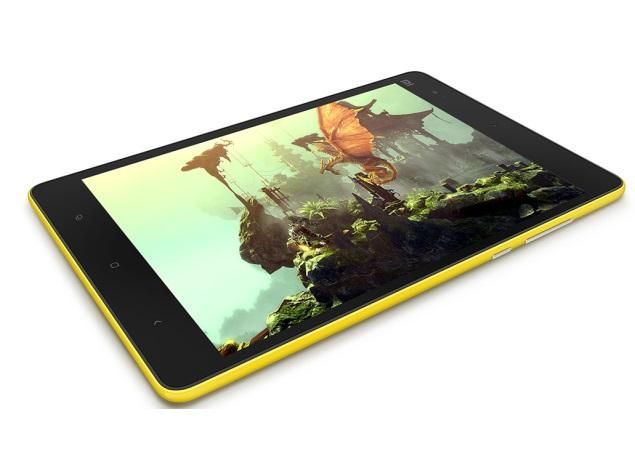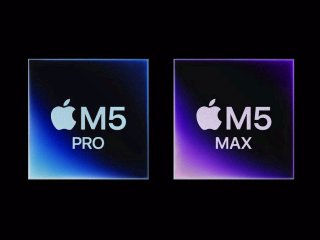- Home
- Tablets
- Tablets News
- Xiaomi MiPad With 7.9 Inch Retina Display and Tegra K1 SoC Launched
Xiaomi MiPad With 7.9-Inch Retina Display and Tegra K1 SoC Launched
By Robin Sinha | Updated: 16 May 2014 17:12 IST

Click Here to Add Gadgets360 As A Trusted Source

Advertisement
Last week we heard that Xiaomi is nearing its first ever tablet launch, and on Thursday the Chinese firm launched the MiPad tablet in the Chinese market. The 16GB variant is priced at CNY 1,499 (roughly Rs. 14,268), and the 64GB variant at CNY 1,699 (roughly Rs. 16,174).
The tablet was introduced at an event in Beijing by Lei Jun, Xiaomi's CEO. Xiaomi announced a mid-June China availability the tablet.
The Xiaomi MiPad comes with a 7.9-inch QXGA (2048x1536 pixel) IPS Retina display resolution with a pixel density of 324ppi, all of which is protected by Corning Gorilla Glass 3 screen. Notably, this seems to be the same Sharp-made display Apple uses on the iPad mini with Retina. The new Xiaomi MiPad runs on Android 4.4 OS paired with MiUI out-of-the-box.
Notably, the MiPad is the first tablet to be powered by a '4+1'-core Nvidia Tegra K1 SoC ARM Cortex-A15 processor clocked at 2.2GHz with the 192-core Kepler GPU, alongside 2GB of LPDDR3 RAM. Xiaomi is also offering MicroSD card support for up to 128GB storage expansion.
The Xiaomi MiPad tablet sports an 8-megapixel rear camera with a Sony BSI sensor that can shoot full-HD resolution videos. It also features a 5-megapixel front-facing camera that includes an OmniVision sensor. Both cameras come with a f2.0 aperture. Connectivity options of the tablet include dual-band Wi-Fi 802.11 a/b/g/n/ac and Bluetooth 4.0.
The MiPad tablet is backed by a 6700mAh Li-ion battery and is available in Black, White, Red, Blue, Green and Yellow colour variants. The tablet measures 135.4x202.1x8.5mm and weighs 360 grams.
Last month, Xiaomi revealed its expansion plans for this year, which includes an entry in 10 new markets including India. The Chinese handset maker is yet to reveal the specific rollout plan for each of the countries, but one can expect to hear more soon.
Hugo Barra, Xiaomi's Global Vice President and former Google Vice President, confirmed that his company has been looking forward to association with telecom operators and other partners in India. He added that his company has plans to sell the smartphones at competitive prices via its own e-commerce site.
The tablet was introduced at an event in Beijing by Lei Jun, Xiaomi's CEO. Xiaomi announced a mid-June China availability the tablet.
The Xiaomi MiPad comes with a 7.9-inch QXGA (2048x1536 pixel) IPS Retina display resolution with a pixel density of 324ppi, all of which is protected by Corning Gorilla Glass 3 screen. Notably, this seems to be the same Sharp-made display Apple uses on the iPad mini with Retina. The new Xiaomi MiPad runs on Android 4.4 OS paired with MiUI out-of-the-box.
Notably, the MiPad is the first tablet to be powered by a '4+1'-core Nvidia Tegra K1 SoC ARM Cortex-A15 processor clocked at 2.2GHz with the 192-core Kepler GPU, alongside 2GB of LPDDR3 RAM. Xiaomi is also offering MicroSD card support for up to 128GB storage expansion.
The Xiaomi MiPad tablet sports an 8-megapixel rear camera with a Sony BSI sensor that can shoot full-HD resolution videos. It also features a 5-megapixel front-facing camera that includes an OmniVision sensor. Both cameras come with a f2.0 aperture. Connectivity options of the tablet include dual-band Wi-Fi 802.11 a/b/g/n/ac and Bluetooth 4.0.
The MiPad tablet is backed by a 6700mAh Li-ion battery and is available in Black, White, Red, Blue, Green and Yellow colour variants. The tablet measures 135.4x202.1x8.5mm and weighs 360 grams.
Last month, Xiaomi revealed its expansion plans for this year, which includes an entry in 10 new markets including India. The Chinese handset maker is yet to reveal the specific rollout plan for each of the countries, but one can expect to hear more soon.
Hugo Barra, Xiaomi's Global Vice President and former Google Vice President, confirmed that his company has been looking forward to association with telecom operators and other partners in India. He added that his company has plans to sell the smartphones at competitive prices via its own e-commerce site.
Comments
For details of the latest launches and news from Samsung, Xiaomi, Realme, OnePlus, Oppo and other companies at the Mobile World Congress in Barcelona, visit our MWC 2026 hub.
Related Stories
Popular on Gadgets
- Samsung Galaxy Unpacked 2026
- iPhone 17 Pro Max
- ChatGPT
- iOS 26
- Laptop Under 50000
- Smartwatch Under 10000
- Apple Vision Pro
- Oneplus 12
- OnePlus Nord CE 3 Lite 5G
- iPhone 13
- Xiaomi 14 Pro
- Oppo Find N3
- Tecno Spark Go (2023)
- Realme V30
- Best Phones Under 25000
- Samsung Galaxy S24 Series
- Cryptocurrency
- iQoo 12
- Samsung Galaxy S24 Ultra
- Giottus
- Samsung Galaxy Z Flip 5
- Apple 'Scary Fast'
- Housefull 5
- GoPro Hero 12 Black Review
- Invincible Season 2
- JioGlass
- HD Ready TV
- Latest Mobile Phones
- Compare Phones
Latest Gadgets
- Apple iPhone 17e
- AI+ Pulse 2
- Motorola Razr Fold
- Honor Magic V6
- Leica Leitzphone
- Samsung Galaxy S26+
- Samsung Galaxy S26 Ultra
- Samsung Galaxy S26
- MacBook Pro 16-Inch (M5 Max, 2026)
- MacBook Pro 16-Inch (M5 Pro, 2026)
- Apple iPad Air 13-Inch (2026) Wi-Fi + Cellular
- Apple iPad Air 13-Inch (2026) Wi-Fi
- Huawei Watch GT Runner 2
- Amazfit Active 3 Premium
- Xiaomi QLED TV X Pro 75
- Haier H5E Series
- Asus ROG Ally
- Nintendo Switch Lite
- Haier 1.6 Ton 5 Star Inverter Split AC (HSU19G-MZAID5BN-INV)
- Haier 1.6 Ton 5 Star Inverter Split AC (HSU19G-MZAIM5BN-INV)
© Copyright Red Pixels Ventures Limited 2026. All rights reserved.

















